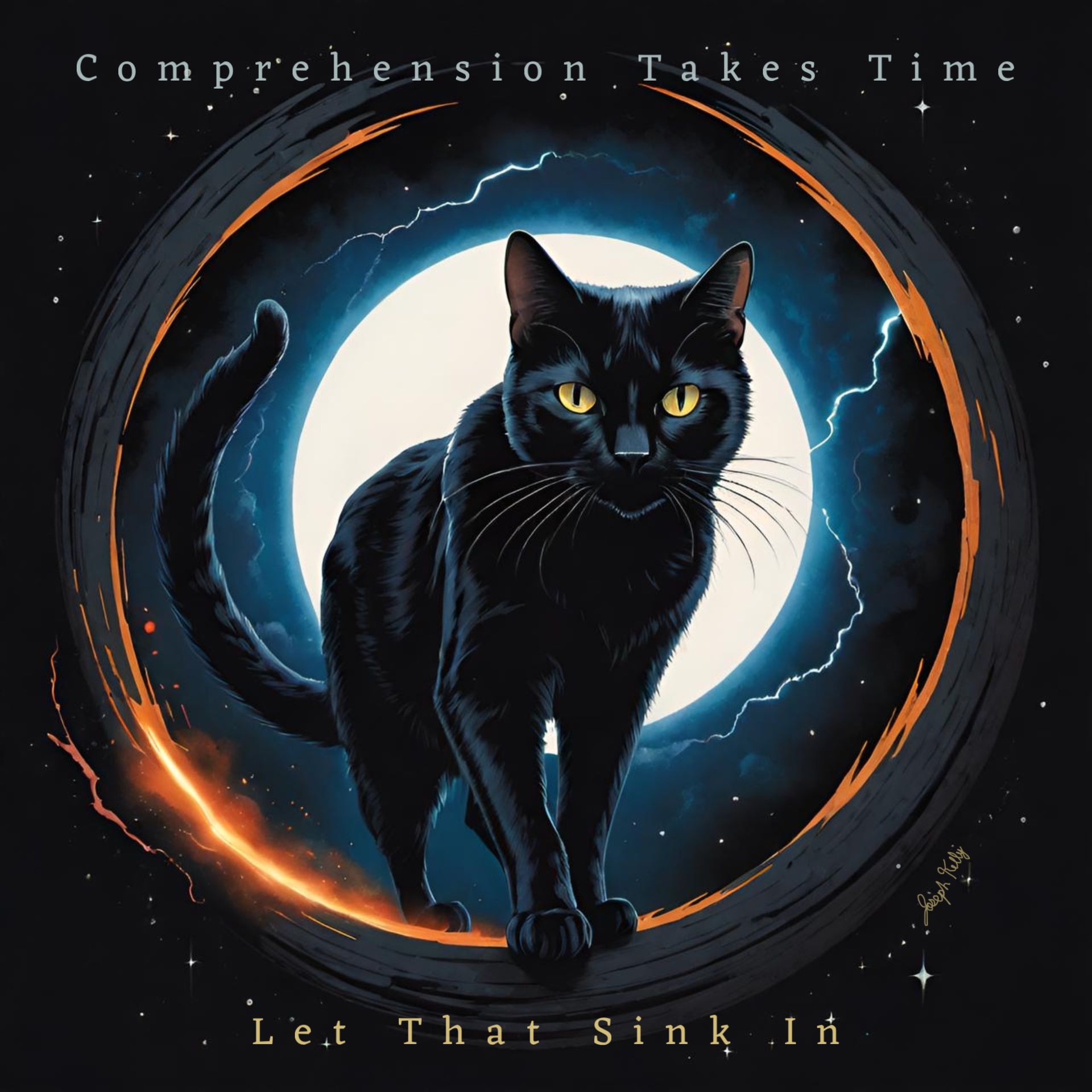The Devil in the Details: How Micro-Management of Life Prevents Macro-Living
Did you ever wonder if the devil is in the details, because he wants you to live on autopilot, never deeply engaged with anything, disconnected, ungrounded, and never paying enough attention into the world and your life to get true meaning and wizened experience out of it?
The Paradox of Productive Emptiness
We live in an age of unprecedented organizational capability. Our phones buzz with reminders, our calendars synchronize across devices, and our productivity apps promise to optimize every waking moment. Yet despite this remarkable coordination of details, many people report feeling more disconnected from meaningful experience than ever before. The question posed above suggests a provocative possibility: perhaps our obsession with managing life’s minutiae has become a sophisticated form of spiritual bypass, allowing us to stay perpetually busy while avoiding the more challenging work of actually living.
The traditional phrase “the devil is in the details” warns us that small oversights can derail larger plans. But what if we’ve internalized this warning so completely that we’ve inverted its wisdom? What if our hypervigilance about details has become the very mechanism that keeps us from engaging with the substance of our existence?
Consider the modern professional who tracks their sleep cycles, monitors their step count, schedules their meals, optimizes their morning routine, and fills every calendar slot with purposeful activity. On paper, this person appears to be living with remarkable intentionality. Yet ask them about their deepest satisfactions, their moments of genuine wonder, or their sense of connection to something larger than themselves, and you might encounter a puzzling emptiness. They know exactly how many hours they slept but have forgotten what it feels like to truly rest. They can tell you their precise caloric intake but have lost touch with the simple pleasure of tasting food.
The Illusion of Control Through Measurement
Human beings have always sought to impose order on chaos, but digital technology has amplified this impulse to unprecedented degrees. We can now quantify aspects of experience that previous generations simply accepted as unmeasurable mysteries. Heart rate variability, productivity scores, mood tracking, habit streaks, meditation minutes, social media engagement rates, financial optimization ratios. The list grows daily.
There’s nothing inherently wrong with measurement. Data can illuminate patterns and help us make better decisions. The problem arises when measurement becomes a substitute for experience itself. When we’re so focused on tracking our meditation practice that we lose the ability to simply be present. When we’re so concerned with optimizing our relationships that we forget how to love spontaneously. When we’re so busy monitoring our happiness levels that we miss opportunities for actual joy.
This phenomenon represents a peculiar form of dissociation. We split ourselves into the observer and the observed, the tracker and the tracked. The tracking self feels productive and in control, while the tracked self becomes increasingly objectified and distant. We begin to relate to our own lives as if we were managing someone else’s performance metrics.
The psychological appeal of this approach is obvious. Details feel manageable in ways that larger questions do not. We can control whether we complete our daily workout, but we cannot control whether we find our work meaningful. We can measure our sleep quality, but we cannot measure our spiritual satisfaction. We can optimize our schedules, but we cannot schedule authentic connection or genuine insight.

The Fragmentation of Attention
Modern life conspires to fragment our attention into ever-smaller units. Notifications arrive constantly, demanding immediate micro-responses. Email requires ongoing maintenance. Social media feeds offer endless streams of bite-sized content. Even our entertainment has adapted to these patterns, with short-form videos, podcast clips, and summarized articles designed for rapid consumption.
This fragmentation extends beyond technology into how we structure our days and think about our goals. We break large objectives into smaller tasks, smaller tasks into action items, action items into time blocks. We segment our lives into work time, family time, exercise time, personal development time, as if each could be optimized independently of the others.
While this approach can certainly increase efficiency, it can also prevent us from experiencing the deeper rhythms and connections that give life its meaning. A fragmented life may be highly productive but profoundly unsatisfying. We become experts at managing the pieces while losing sight of the whole.
The result is a kind of existential ADHD, where we’re constantly switching between micro-tasks but never settling into the sustained attention that allows for deep engagement with anything. We develop what might be called “context-switching syndrome,” where we’re always preparing for the next thing rather than fully inhabiting the current thing.
Busy Versus Engaged
There’s a crucial distinction between being busy and being engaged, though our culture often conflates the two. Busyness is about activity level and time management. Engagement is about depth of attention and quality of presence. You can be incredibly busy while remaining fundamentally disengaged from your actual experience.
Engaged attention has several characteristics that busy attention typically lacks. It’s sustained rather than fragmented, allowing for the kind of deep focus that produces both satisfaction and insight. It’s receptive rather than purely goal-oriented, creating space for surprise and discovery. It’s holistic rather than analytical, taking in the full texture of experience rather than reducing everything to measurable components.
When we’re genuinely engaged, time takes on a different quality. Minutes can feel like hours when we’re fully absorbed in meaningful work, while hours can feel like minutes when we’re mechanically processing tasks. This altered relationship with time is one of the clearest indicators that we’ve moved beyond mere busyness into genuine engagement.
The psychology of engagement reveals why detail obsession can be counterproductive. Engagement requires a certain amount of mental space and flexibility. When our attention is completely occupied with managing details, we have no bandwidth left for the kind of open awareness that allows engagement to emerge. We become like musicians who are so focused on hitting every note perfectly that they lose the ability to make music.

The Mindfulness Paradox
The popularity of mindfulness practices in recent years represents, in part, a cultural attempt to address the fragmentation problem. People sense that they’re living at the surface of their experience and seek practices that promise deeper connection. Yet even mindfulness can fall victim to the detail obsession it’s meant to cure.
Meditation apps track our streaks. Mindfulness courses provide detailed instructions for “proper” awareness. Retreats offer structured schedules for achieving enlightenment. We can find ourselves approaching mindfulness with the same goal-oriented, measurement-focused mindset that creates the problem in the first place.
True mindfulness is less about following detailed instructions and more about developing a capacity for simple presence. It’s the ability to notice what’s actually happening in any given moment without immediately jumping to management, optimization, or improvement. This kind of awareness can’t be forced through technique or measured through metrics.
The paradox is that genuine mindfulness often emerges when we stop trying so hard to be mindful. When we release our grip on controlling the details of our experience and allow ourselves to simply be with what’s present. This requires a fundamental shift from doing mode to being mode, from managing experience to receiving it.
The Economics of Attention
Our current economic system has a vested interest in fragmenting and capturing human attention. The more time we spend managing details through various platforms and applications, the more opportunities exist for monetization. Social media companies profit from keeping us scrolling. Productivity app developers benefit from our desire to optimize. The self-help industry thrives on our sense that we’re not managing our lives effectively enough.
This creates a peculiar situation where solutions to attention fragmentation often contribute to further fragmentation. We download apps to help us focus, then spend time managing those apps. We create systems to simplify our lives, then spend time maintaining those systems. We seek tools to help us be more present, then get caught up in the mechanics of using those tools.
Breaking free from this cycle requires recognizing that the problem may not be a lack of the right tools or techniques, but rather an over-reliance on tools and techniques in general. Sometimes the most effective way to engage more deeply with life is to simply stop trying to optimize the experience and start actually having it.

The Wisdom of Strategic Ignorance
In a world that prizes information and control, there’s something radical about choosing not to track certain aspects of our experience. Strategic ignorance means deliberately avoiding measurement in domains where measurement might interfere with natural functioning.
For example, constantly monitoring our mood can paradoxically make us more anxious about our emotional state. Tracking every social interaction can make us self-conscious in ways that damage spontaneous connection. Measuring every aspect of our health can create a hypochondriacal relationship with our bodies.
Strategic ignorance doesn’t mean being careless or unconscious. Rather, it means recognizing that some forms of awareness are better cultivated through direct experience than through data collection. We can be deeply attuned to our energy levels without needing to quantify them. We can have rich relationships without analyzing their metrics. We can live healthy lives without turning our bodies into ongoing science experiments.
The practice of strategic ignorance requires developing trust in our own capacity for natural regulation and intuitive wisdom. This trust has been eroded by decades of messages suggesting that we can’t make good decisions without detailed data and expert guidance. Reclaiming it requires gradually releasing our grip on external validation and reconnecting with internal sources of guidance.
Presence as Revolutionary Act
In a culture that profits from distraction and fragmentation, sustained presence becomes a quietly revolutionary act. When we fully inhabit our experience, we become less susceptible to manipulation and less dependent on external systems for meaning and direction.
Presence is not a technique to be perfected but a capacity to be cultivated. It emerges when we stop trying to manage our experience and start trusting our ability to respond skillfully to whatever arises. This shift from management to responsiveness is crucial for moving beyond the detail trap.
Responsive living means paying attention to what actually matters in each moment rather than what we think should matter based on our systems and plans. Sometimes what matters is completing an important task efficiently. Sometimes what matters is pausing to notice the quality of light in the room. Sometimes what matters is having an unplanned conversation that goes nowhere productive but deepens connection.
The ability to discern what matters requires the kind of spacious awareness that gets crowded out when we’re overly focused on details. We need mental bandwidth available for intuition, spontaneity, and genuine responsiveness to emerge.

Practical Philosophy for Daily Life
Moving beyond detail obsession doesn’t require abandoning all planning and organization. Rather, it involves developing a more balanced relationship with management and a clearer sense of what aspects of life benefit from detailed attention versus which ones flourish with more space and freedom.
Here are some practical approaches for cultivating this balance:
Create Technology-Free Zones: Establish regular periods where you’re not tracking, measuring, or optimizing anything. Let your experience be unmeasured and unmanaged. Notice what emerges when you’re not trying to capture or improve the moment.
Practice Unscheduled Time: Build periods into your week with no agenda beyond being present to whatever arises. This isn’t lazy time or wasted time, but rather space for the kind of organic engagement that can’t be planned.
Simplify Your Metrics: Choose one or two areas of life where measurement truly serves you, and release your grip on tracking everything else. Let most of your experience be unmeasured.
Cultivate Seasonal Rhythms: Instead of trying to optimize every day, think in terms of longer cycles. Some seasons are for focused productivity, others for rest and reflection. Some periods call for detailed planning, others for spontaneous exploration.
Notice Quality Over Quantity: Pay attention to the felt sense of your experiences rather than just their measurable aspects. How does this conversation feel? What’s the texture of this moment? What wants to emerge here?
Practice Single-Tasking: When you do something, do only that thing. Let yourself be fully present to one activity at a time rather than constantly preparing for or thinking about the next thing.
Trust Your Natural Rhythms: Your body and mind have their own intelligence about when to focus and when to rest, when to engage and when to withdraw. Practice listening to these rhythms rather than overriding them with external systems.
The Integration Challenge
The goal is not to swing from one extreme to another, from obsessive detail management to complete disorganization. Rather, the aim is to develop discernment about when detailed attention serves life and when it interferes with it.
Some situations genuinely benefit from careful planning and precise execution. Complex projects, financial planning, health management during illness, and many professional responsibilities require sustained attention to details. The key is being able to engage this focused mode when it’s truly needed while also being able to release it when it’s not.
This requires developing what might be called “attentional flexibility” – the ability to zoom in and zoom out, to focus and broaden, to manage and allow, depending on what the situation actually calls for rather than what our habitual patterns dictate.
Integration also means recognizing that detailed planning and spontaneous living can actually support each other when held in proper balance. Good planning can create more space for spontaneity by handling routine decisions efficiently. Periods of unstructured time can provide the renewal and insight that makes focused work more effective.
Beyond Optimization
Perhaps the deepest invitation in all of this is to move beyond the optimization mindset altogether. Optimization assumes that there’s a best way to live and that our job is to figure out what that is and implement it efficiently. But what if life is less like a problem to be solved and more like a dance to be danced?
This shift in metaphor changes everything. Dances aren’t optimized; they’re experienced. They have rhythms and flows, moments of intensity and release, periods of structure and improvisation. A good dance isn’t one that accomplishes the most in the least time, but one that fully expresses what wants to emerge through the interaction of music, body, and moment.
Living this way requires a fundamental trust in the intelligence of life itself. Instead of trying to control outcomes through detailed management, we learn to participate skillfully in the unfolding of experience. We develop the capacity to respond creatively to whatever arises rather than trying to make everything arise according to our plans.
The Courage to Live Unmeasured
There’s something vulnerable about living parts of our lives unmeasured and unmanaged. It means accepting that we can’t control outcomes as much as we’d like. It means trusting that meaning and satisfaction can emerge without being engineered. It means believing that we have the capacity to navigate life skillfully without turning ourselves into ongoing optimization projects.
This vulnerability is also where aliveness lives. When we release our grip on managing every detail, we create space for surprise, for genuine encounter, for the kind of experiences that can’t be planned but can transform us when they occur.
The devil may indeed be in the details, not because details themselves are problematic, but because our obsession with them can become a way of avoiding the deeper uncertainties and possibilities of being human. When we spend all our time managing the surface of life, we never dive deep enough to discover what’s really there.
True engagement with life requires the courage to live unmeasured portions of our experience, to trust in our capacity for natural wisdom, and to believe that meaning emerges not from optimization but from authentic participation in the mystery of being alive.
The invitation is not to abandon all planning and organization, but to hold these tools more lightly, using them when they serve life and releasing them when they interfere with it. In doing so, we might discover that the most important aspects of human experience – love, wonder, creativity, peace, genuine connection – can’t be optimized at all. They can only be received with the kind of spacious presence that emerges when we stop trying to manage everything and start trusting in the intelligence of life itself.
